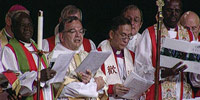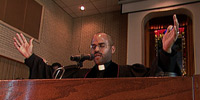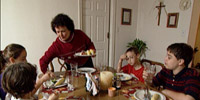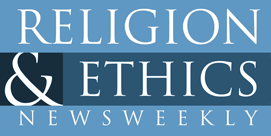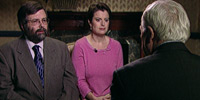Top Anglican Church leaders from Africa and Asia came to the U.S. this week and issued a joint pledge of support for conservatives in the U.S. Episcopal Church. The international leaders met in Pittsburgh with more than 2,100 Americans who are at odds with the Episcopal Church over the consecration of an openly gay bishop. More
Part three of a four-part series on faith and family: poor black families endure huge problems — high rates of divorce, single parents, and out-of-wedlock births. Why are so many poor African-American families in trouble, and what are their churches doing to help? More
Part two of a four-part series on faith and family: three quarters of all Americans say they believe it’s likely their children will grow up to be of the same religious faith as their parents, but more than half say they worry about that. More
As the U.S. Senate prepared for hearings on President George W. Bush’s nomination of Judge Samuel Alito to the Supreme Court, the court heard arguments on a major religious freedom case. At issue is whether the União do Vegetal Church should be able to import a hallucinogenic tea it uses for worship, or whether the government should be able to prevent that as a danger to public health. More
Read more of Betty Rollin’s interview on religion, parenting and the RELIGION & ETHICS NEWSWEEKLY poll on Faith and Family in America with Professor Brad Wilcox. More
Part one of a four-part series on faith and family: a poll commissioned by RELIGION & ETHICS NEWSWEEKLY shows that Americans both idealize the traditional family, and at the same time are more and more accepting of families that are nontraditional. More
Read more of Kim Lawton’s interview about faith and family in America with Nancy Ammerman, professor of the sociology of religion at Boston University. More
Read more of Kim Lawton’s interview about faith and family in America with Penny Edgell, professor of sociology at the University of Minnesota and author of RELIGION AND FAMILY IN A CHANGING SOCIETY. More
Historically, in most religious traditions, suicide has been considered a sin. In light of this, many survivors have felt religiously stranded. How can their faith help them heal when that same faith may fault their loved one for the act of suicide? More
The numbers on how family structures have changed are dramatic. Counting parents with children at home, as recently as 1970, traditional families — mother and father with children under 18 — made up 40 percent of all households. But by 2000, that had fallen to just a quarter of all households. More
Religion & Ethics NewsWeekly
X


